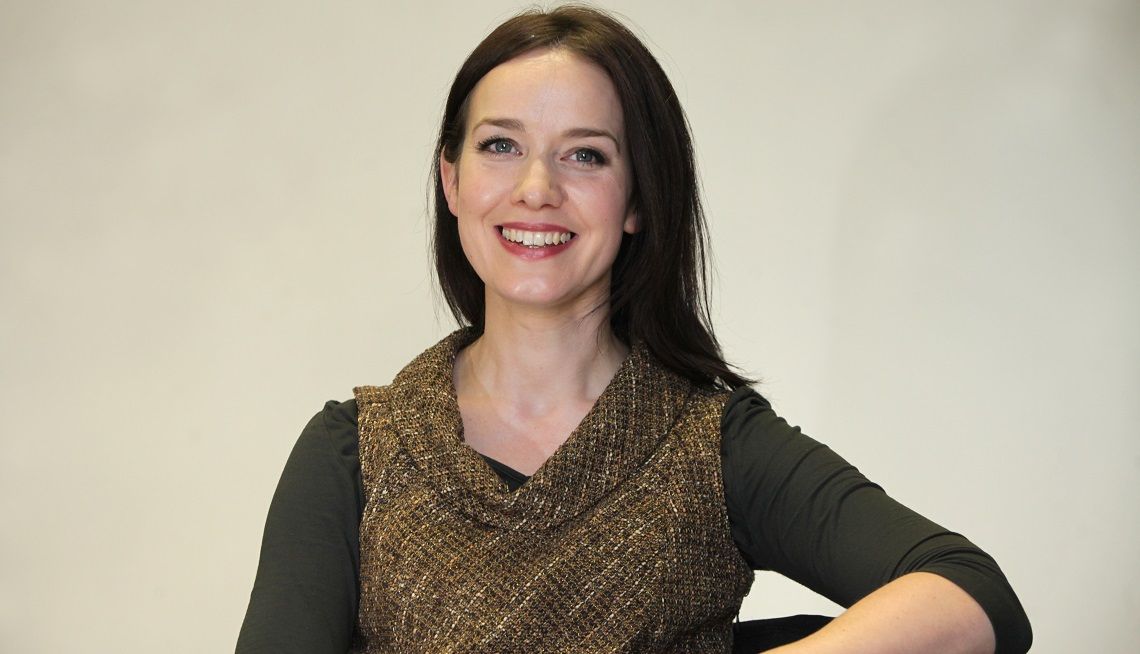Tamsin Greulich-Smith, Chief, Smart Health Leadership Centre, Singapore
By Chia Jie Lin
Women in GovTech 2018 Special Report.

In my role as Chief of the Smart Health Leadership Centre at NUS, I focus on impact design in everything we do. We aspire to play a role in transforming the future experience of health through data, technology, and design. All of our teaching programmes or research efforts are designed to achieve impact, rather than focusing on tools or current trends for the sake of it.
This year, we’ve been looking a lot at social isolation, particularly amongst seniors. Social isolation is often associated with poorer health outcomes, either because people are less inclined to look after themselves well, or less supported in doing so. One of our projects has been an interesting prototyping pilot delivered in partnership with Yishun Community Hospital, Lions Befrienders, and Allied World Healthcare, to integrate care for discharged patients through a digital dashboard, so that all parties have a live, shared view of the patient.
In addition, some of those seniors have had an Artificial Intelligence device placed in their homes. The device is a voice-activated chatbot that links to the senior’s care plan and to a local calendar of senior activities, as well as a database of messages submitted to Singapore’s seniors through the Silver Bow campaign. The AI device nudges the seniors to care for themselves, as well as helping to nudge them to get sociable.
It’s been interesting to watch the seniors build relationships with these devices, which do seem to have some impact in nudging certain behaviours and providing reassurance.
What has been the most exciting thing that you worked on in 2018?
I’ve been delighted to launch Singapore’s first Professional Diploma in Smart Health Leadership. This is a stackable training programme that builds transformation skills for practitioners across the care continuum, from healthcare to social care, clinical to operational, through short and experiential courses in systems thinking, data storytelling, digital technology, service design, and process reengineering.
It’s followed by mentored capstone projects that will result in pilots being implemented on the ground. Our first cohort of students commenced the programme in September, and are looking to complete their pilots by the end of April 2019. This is healthcare transformation in action, and is very exciting to be part of!
If you were to share one piece of advice that you learned in 2018, what would it be?
During 2018 I have been asked one question more than any other – will AI take our jobs?
The more I work with AI and research its uses around the world, the more convinced I am that we can futureproof ourselves by being ‘human’. Some jobs will be replaced, but building emotional intelligence, empathy, creativity, and humour can help us to remain relevant. Particularly in healthcare, society is not yet ready to replace care with tech.
What tool or technique particularly interests you for 2019?
Serious gaming for health. I believe it has great potential, but game design is hard, and without good games you won’t hook people in. We can do a lot more with gaming to nudge healthier behaviours, or to use it for rehabilitation or self-care.
My team is currently developing a game to help people post-stroke with their rehabilitation therapies. I’d like to see our work in this area increase, with the right mix of partners.
I am also very interested in digital mental health, and suicide prevention. Suicide remains one of the leading causes of preventable death in the world, and digital tools are enabling us to predict it more accurately than ever before. We now need to explore how to take those insights and trigger life-saving interventions.
What are your priorities for 2019?
On a personal level, to get more sleep.
On a professional level, I am keen to open up our training and mentoring programmes to a wider audience than ever before, in order to achieve even greater impacts collaboratively. Everyone has a role to play in transformation initiatives, be they organisationally focused or community-based.
Digital technologies have empowered people and opened up opportunities to those who might previously have been excluded from them. I would like to leverage upon this to build skills and inspire people to play an active role in creating healthier futures.
What is one skill that has helped you the most throughout the course of your career?
Empathy. Understanding the stakeholders involved in my programmes; respecting their perspectives, fears, and aspirations; engaging people and building trust. Even the most complex problems I’ve encountered have been successfully overcome through genuine stakeholder engagement and collaboration.
What advancements do you predict will happen in your field in the next ten years?
No-one wants to be ill. However, many of us don’t think about our health until we do fall ill. I often talk about ‘health by stealth’, making people healthier without them having to make a conscious effort. I believe we will see more movements in this direction.
I think wearables will start to be replaced by implants and ingestibles, to help monitor our biostats and nudge or intervene appropriately. I hope we will move towards a more seamless health and healthcare experience.
I also believe we will see a far more diverse ecosystem of players in the health sector, and new partnerships evolving to meet the demanding expectations of digital consumers. I think the healthcare industry is on the brink of very disruptive change, and a thorough re-imagining of the traditional healthcare model is on its way.
Coffee, yoga, music… what powers you through your day?
I can’t start the day without a decent cup of coffee… but the thing that really energises me is being surrounded by brilliant people who are passionate about making a difference. People with passion make you feel that anything might be possible.